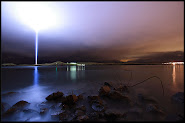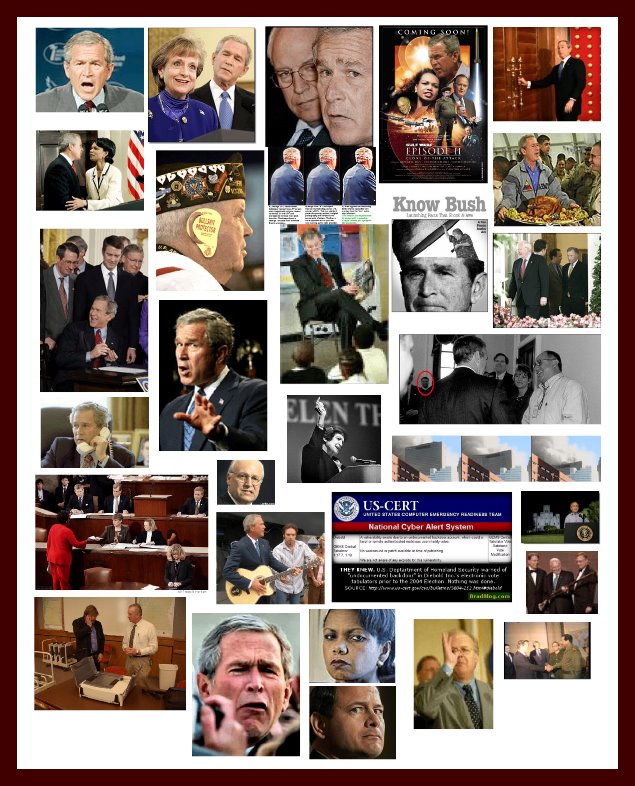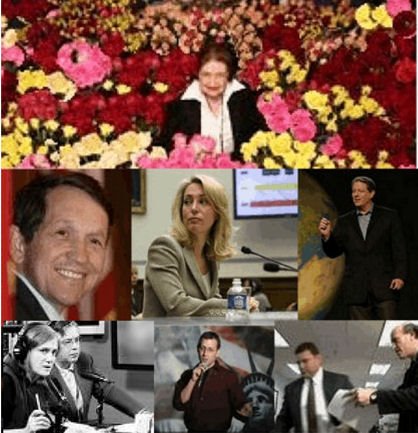On Wednesday, January 23, 2008, Dennis Kucinich addressed the House of Representatives:
The Center for Public Integrity in a report released today has found "The Bush administration led the nation to war on the basis of erroneous information that it methodically propagated and that culminated in military action against Iraq on March 19, 2003."
In short, the president and the vice president lied and four thousand of our soldiers died. The president and the vice president lied and a million innocent Iraqis died in a war that will cost us 2 trillion dollars, when people here in the States are losing their jobs, their healthcare, their homes, their dignity.
Lies are weapons of mass destruction. Lies are also an impeachable offense.
Monday, January 28th, is the State of the Union. We already know the State of the Union. It’s a Lie. We must reestablish truth as the State of our Union, so on that day I will introduce Articles of Impeachment concerning the president.
If impeachment is off the table, then the truth is off the table. If the truth is off the table, this House will be living a lie.
The Bible says, “You shall know the truth and the truth shall set you free.” Let us once again be the land of the free by beginning the process which the founders understood will set us free and keep us free – Impeachment.
Thankyou, Congressman Kucinich, for your diligence, determination, and greater courage than the remaining Presidential candidates.
This is what Patriotism looks like.
That report by the Center for Public Integrity, by Charles Lewis and Mark Reading-Smith, states in its opening paragraph:
President George W. Bush and seven of his administration's top officials, including Vice President Dick Cheney, National Security Adviser Condoleezza Rice, and Defense Secretary Donald Rumsfeld, made at least 935 false statements in the two years following September 11, 2001, about the national security threat posed by Saddam Hussein's Iraq. Nearly five years after the U.S. invasion of Iraq, an exhaustive examination of the record shows that the statements were part of an orchestrated campaign that effectively galvanized public opinion and, in the process, led the nation to war under decidedly false pretenses.
On at least 532 separate occasions (in speeches, briefings, interviews, testimony, and the like), Bush and these three key officials, along with Secretary of State Colin Powell, Deputy Defense Secretary Paul Wolfowitz, and White House press secretaries Ari Fleischer and Scott McClellan, stated unequivocally that Iraq had weapons of mass destruction (or was trying to produce or obtain them), links to Al Qaeda, or both. This concerted effort was the underpinning of the Bush administration's case for war.
When White House Press Secretary Dana Perino was asked for a response to the report, she said,
I have to think that the study is worth spending any time on -- it is so flawed in terms of taking anything into context or including -- they only looked at members of the administration, rather than looking at members of Congress or people around the world. Because as you'll remember, we were part of a broad coalition of countries that deposed a dictator based on a collective understanding of the intelligence.
Meanwhile, I have spent a great deal of this weekend reading Charlie Savage's book, Takeover: The Return of the Imperial Presidency and the Subversion of American Democracy.
Amongst the most mind-boggling information I've come across are these 3 make-you-tear-your-hair-out's:
1. The interrogation techniques the Bush/Cheney supports come from the Korean War, when the Chinese helped the Koreans take American POWs and get them to confess to things they did not do, so they could be filmed for propaganda purposes. The U.S. responded by developing a program that prepared our soldiers for these torture techniques -- in hopes they could stop the false confessions. 50 years later, either someone forgot -- or someone who wanted propaganda remembered -- that such techniques do not result in valuable information -- they are specifically designed to drive men mad - to get them to say what you want them to say.
2. It was during the Reagan administration that a Justice Department panel was created to study the value of signing statements. One attorney stood out with his vision of using them to throw the balance of powers off to enforce a Unitary Executive, carefully, slowly, knowing Congress would resist. He recommended starting on inoffensive, ambiguous sections of bills, setting precedence along the way, so that it would be easier, as time went by to argue the case for greater and greater use. That attorney was Samuel Alito, George W. Bush's second Supreme Court appointment.
3. Bush's first Supreme Court appointment, John Roberts, Jr., had been one of the three judges who made up the appellate court that turned over a lower court ruling that said that Bush did not have the unbridled war powers to initiate military commission trials for detainees without involving Congress - by a vote of 2-1. Roberts' decisive vote also gave Bush, as commander in chief, the independent power to waive the Geneva Conventions that protected detainees in his war on terror. In preparation for his vote, Roberts met with Cheney, Gonzales, Scooter Libby, Karl Rove, Andrew Card and Harriet Myers -- oh yes, and on the day the decision was handed down, George W. Bush. Four days later Mr. Bush nominated him to the Supreme Court. Now Roberts holds the most powerful, most untouchable position in the United States government -- the youngest man in this life-long position in over 200 years.
When our grandchildren ask what we did in the real war of our times, the War on "We, the People," what will we say?


















No comments:
Post a Comment